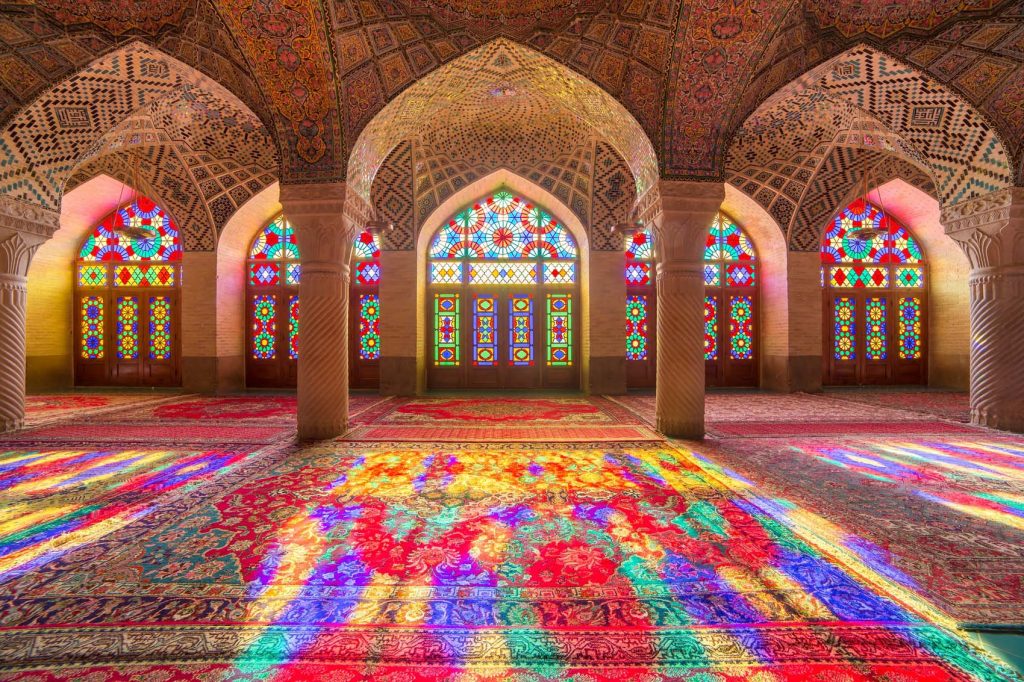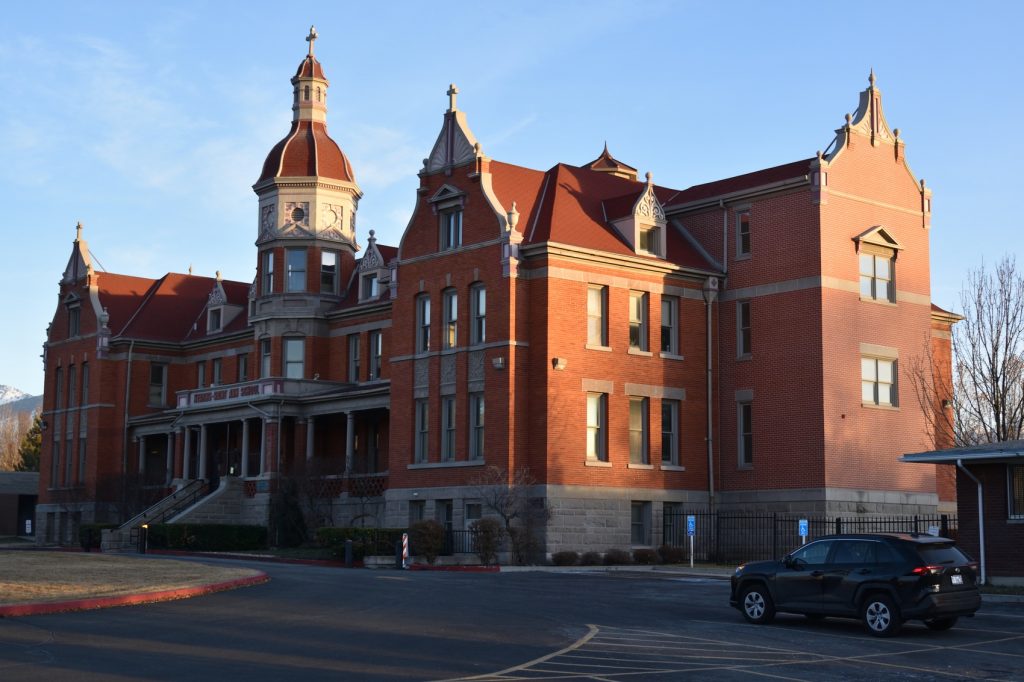
Your Mosque Matters. We Can Help.
The experienced mosque land use and zoning attorneys of Dalton & Tomich, PLC will defend your mosque’s right to grow and to worship freely so your organization can thrive.
It happens more often than religious groups realize. You purchased land with the intention of using it for a mosque, but the local government denied you the ability to use the land for religious assembly due to zoning issues.
What can you do?
Dalton & Tomich, PLC can guide you through the complicated zoning process. If you are having difficulty securing permits and approvals needed for your mosque, there may be a religious protection act or federal law that can help. Don’t let a local government denial deter your mosque’s good work. We can help you overcome design requirements, zoning issues, and many other land use disputes.

If your mosque is seeking to expand or add to existing structures and you are facing opposition from a local governing body, you have options. There are laws that may give you the right to use the land for a mosque even if local entities are against the project. Our success before local administrative bodies and in federal court has enabled mosques to pursue their missions, acquire new property, expand existing buildings, and complete new construction projects. In addition to zoning approval, we have helped clients recover monetary damages, attorney fees, and injunctive relief, allowing you to secure the permits for mosque construction.
Our cases often involve a mosque's rights under:
- The Free Exercise Clause of the First Amendment
- The Equal Protection Clause of the Fourteenth Amendment
- The Religious Land Use and Institutionalized Persons Act (RLUIPA)
Allow us to be your guide to the religious land use act
The team at Dalton & Tomich can help you navigate the often complicated process of achieving zoning approval for your mosque or community center. And if necessary, we can also help if your case requires federal court litigation.
The professionals at Dalton & Tomich, PLC have successfully defended the rights of mosques and other houses of worship in complex religious land use and zoning cases throughout the United States. Our attorneys are well versed in the following:
- First Amendment Free Exercise Clause
- Equal Protection Clause of the Fourteenth Amendment
- A federal law called the Religious Land Use & Institutionalized Persons Act (RLUIPA)
Our experience with local administrative bodies and in federal court has led to victories that have enabled faith communities to pursue their noble missions by expanding existing buildings, acquiring new property, and completing new construction projects. Cases may involve pursuing remedies, including monetary damages, attorney fees, and injunctive relief, allowing you to secure the permits to open your doors.
Our thoughts on the importance of the Religious Land Use Act to houses of worship have been featured in Islamic Horizons magazine and major news outlets.
GET YOUR FREE RLUIPA GUIDE
If you are being blocked from using the building or property you just purchased for your mosque, you should know two things: 1) You are not alone. 2) You have options.
This FREE guide will help you understand your rights, navigate your options and understand the process for what happens next.
Call us today at (313) 859-6000
Mosque Land Use and Zoning Legal Services
- Mosque construction approvals
- Mosque design requirements
- Mosque space requirements
How we help you fight for the right to use your land
From the onset of engagement, our top priority is to fully understand your objectives and identify any barriers preventing your mosque from achieving its goals. If a planning commission denies your mosque construction project, you may have to take legal action. It is a long process that can involve numerous parties, experts, documentation, and more. Our team provides a complete range of legal services for your mosque. We will:
- Work to secure necessary approval or denial from the local planning commission or administrative body
- Assist in navigating the administrative process
- Support your case in court by finding expert witnesses
- Collect all the evidence and facts that prove your case
- Collaborate with you to prepare and finalize pleadings
- File a Motion for Preliminary Injunction if there’s an opportunity to do so
- Pursue settlement if it’s in the best interests of the members of your mosque
- Keep you updated on the progress of the case as we move through the process

Real World Results for Mosque Construction and Expansion
RLUIPA Law Services
If you find yourself in the unfortunate situation of having purchased a building or land for your faith community only to find it is not zoned for religious assembly, you’re not alone. At Dalton & Tomich, we fight for religious organizations just like yours so that you can freely use your property for religious purposes.
We have successfully defended the rights of religious institutions across the country who were unable to user their property due to unlawful zoning restrictions and land use regulations. We fight for your ability to serve your congregation and your community.
You purchased land with the intention of using it as a home for your religious organization and the local government has denied you the ability to use the land for religious assembly due to zoning issues. What can you do?
The good news is that you may have more rights than you think.
The land use attorneys at Dalton & Tomich, PLC help all faith communities navigate land use disputes and protect their rights under RLUIPA.
Simple Process that Delivers Solutions
Our goal is not just to win cases but to remove the barriers that stand in the way of your ministry and religious mission. We want to take care of your land use issue in a way that allows you to focus on the good work you set out to do.
Land use and zoning matters can be very complex, but we try to simplify the process and accomplish your objectives.






1. Evaluate Goals
We want to understand your religious mission, vision, and values. We want to know the needs of your faith community and what legal issues are standing in its way.
2. Recommendations on the Best Way to Proceed
We will determine if you need to secure an approval or denial from a local administrative body and make recommendations as to how to proceed within the local community’s administrative processes. These recommendations will be rooted in our experience successfully navigating local procedures and land use approval processes on behalf of churches and other religious entities across the nation.
There are many potential scenarios, and our team will help you consider all your options when crafting our approach.
3. Secure Expert Witnesses and Evidence
If needed, we can help you secure expert witnesses in planning, zoning, traffic or any other necessary field to support your zoning application or lawsuit. In some cases, we may recommend retaining a public relations specialist.
4. Suit Preparation and Finalization
After we have all the facts and evidence ready to proceed with your land use or zoning case, we will file suit and seek immediate injunctive relief when possible.
Frequently Asked Questions
When it comes to land use and zoning law, the Religious Land Use and Institutionalized Persons Act (RLUIPA) is an invaluable tool for mosques and other religious institutions. This religious protection act prevents local governments from discriminating against religious uses in the context of zoning. If secular uses are permitted in a zone, religious uses must also be permitted. This is a federal law.
Many other claims can be raised to support local mosque construction in a land use dispute. This includes claims under the First Amendment Free Exercise Clause, the Free Speech or Assembly Clauses, and the Fourteenth Amendment Equal Protection clause.
The facts of your case may bring other federal statutes into play as well. These additional laws could include the Fair Housing Act and the Americans with Disability Act, as well as state constitutional and statutory provisions. We evaluate each claim independently to determine what is the best strategy in moving forward so that you have the best chance of succeeding at trial.
For more on the question of what happens when RLUIPA doesn’t apply, watch our “What if RLUIPA doesn’t apply” video.
Mosques and other religious entities have the same ability to be treated fairly and equally in all zoning and land use matters as secular assembly uses. Local governments who discriminate against these institutions often violate RLUIPA and the United States Constitution.
The facts of your case may bring other federal statutes into play as well. These additional laws could include the Fair Housing Act and the Americans with Disability Act, as well as state constitutional and statutory provisions. We evaluate each claim independently to determine what is the best strategy in moving forward so that you have the best chance of succeeding at trial.
For more on the question of what happens when RLUIPA doesn’t apply, watch our “What if RLUIPA doesn’t apply” video.
Our video on what to do in the case of a zoning denial is the resource you need. The first step is to see if there are any potential internal appeals in the zoning code. If there are no internal appeals available, and if the facts of your case or the language of the zoning ordinance give you the ability to challenge the denial, you can file suit in state or federal court asserting a just cause of action under RLUIPA.
We are happy to help in these matters. Please don’t hesitate to contact us if you have any questions.
Conditional use permits permit religious use in the zoning district, but it’s not considered a right. In order to get the conditional use permit, the applicant has to meet certain requirements specified by a local governing agency.
Estimating the time it will take a case to be settled or decided in court is difficult to do because there are a number of factors involved. Generally speaking, it takes 18 months from filing a suit to the trial. During that year and a half, there will be highs and lows. Preparing for the emotional roller coaster is important, so it’s easier to manage.
Another consideration is that many factors in the case are outside of your control. There’s no way to pick the judge or prevent changes in the laws that impact your case. Therefore, accurately estimating the timeframe and exact course that’s taken is very difficult.
Litigation can be a very expensive endeavor in terms of legal fees and related costs. But it can also be more costly to forfeit your ability to use your land as you intended.
Providing an exact cost for litigation at the beginning of the process is nearly impossible. The cost partly depends on how the other party responds, which we have no control over. We can’t tell you how much a case may cost exactly, but based on our extensive experience, we can tell you the estimated cost of the case going forward.
We understand that choosing an attorney is an important decision that can feel overwhelming at times. Our job is to alleviate the burden by guiding you through the litigation process and providing legal services that deliver value.
For more information, view our video on the time and expenses for a typical religious land use case.
